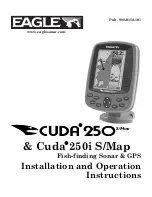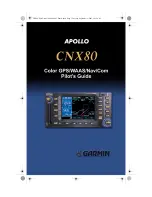
Increase your boat speed to ensure that you get a continuous bottom reading as the boat
moves. Your sensor is designed to operate at up to 75 mph, however exercise caution when
operating any boat at high speed.
If the LCR 3D performs well at idle or slow speeds, but the display is not continuous at
higher speeds, the sensor is not installed properly. Air bubbles or turbulence from the boat hull
are passing across the sensor face, blocking the transmitted signal. By following the instructions
in "Mounting the Sensor," you can make simple adjustments that should fix the problem.
NOTE: If other problems occur, see "Troubleshooting" later in this manual for tips from the
Humminbird engineers. If you don't find the solution there, call our toll free Customer Service
Hotline and speak with one of our highly trained customer service representatives.
This section explains how to
run the LCR 3D simulator for practice
and how to start the LCR 3D for actual
use. You're also shown how to use
VIEW and BEAM - the buttons that let
you control the display of underwater
images on the LCR 3D screen.
You should read this section
and Section 5, "Select System
Functions", as you first learn to use the
LCR 3D. Doing so will ensure you make
the most of its many features.
The first part of this section
explains the built-in simulator. The remaining instructions can be followed while using the
simulator or in actual operation.
Summary of Contents for LCR 3D
Page 1: ......




























